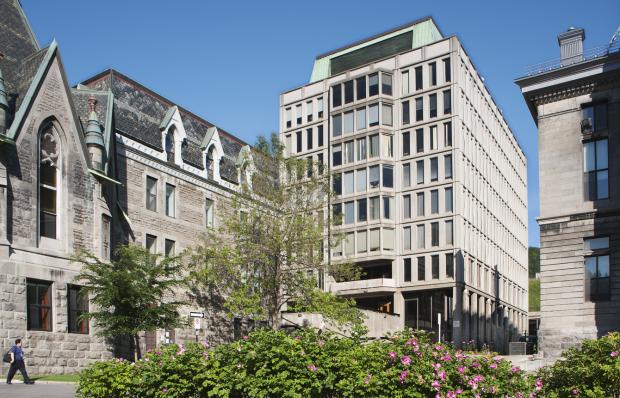McGill’s annual joint Senate and Board of Governors (BoG) meeting, which took place virtually on Nov. 12, addressed the university’s response to the COVID-19 pandemic and future challenges of remote learning and in-person instruction.
Principal and Vice-Chancellor Suzanne Fortier began the meeting by acknowledging the toll that the pandemic and the transition to online classes has taken on McGill’s sense of community.
“It has been eight months to the day since we had to restrict access to our campus,” Fortier said. “There has been a tremendous effort given to that task by everybody at the university […] to help us achieve our academic mission despite this very large crisis.”
After her opening remarks, Fortier yielded the discussion to Dr. Timothy Evans, director of the School of Population and Global Health, who presented an update on the state of COVID-19 in Canada and the work of McGill scientists in combatting the pandemic. Evans speculated that a vaccine for COVID-19 may become available sometime in 2021 and discussed its implications for teaching, such as the possible return of in-person classes. Evans pointed to other schools, such as Tufts University in Massachusetts, that have remained open despite pandemic restrictions on large gatherings.
“What they have done, in a very remarkable way, is create a testing system that will keep on top of the situation on their campus and allow them to remain open without jeopardizing the safety of their students or staff,” Evans said.
Students’ Society of McGill University (SSMU) Arts and Science senator drew attention to Concordia and other Canadian universities’ decisions to extend winter break amidst growing student concerns about academic burnout. The Arts and Science senator questioned Associate Provost (Teaching and Academic Programs) Christopher Buddle on whether the administration is considering such measures given that McGill’s winter 2020 holiday is four days shorter than previous years.
“Although it seems like a fairly simple decision […] to extend the start of the winter term, as you may have realized, the Concordia situation means that students will be studying into May, which has other implications [for] the end [of the school year],” Buddle said. “It takes time to look into this. It is not something that we can decide or make decisions on quickly […], and we [first] have to look at all the factors.”
Following a short open question period, senators and Board members moved into breakout rooms where each group was tasked with summarizing the semester’s successes and challenges and speculating on issues that may arise in the long term.
Arts Senator Darshan Daryanani commented that the pandemic warrants greater attention to addressing McGill’s history of failing to provide adequate mental health services to their students.
“COVID-19 has really proven the inequities [students face] and exacerbated them when we think about learning,” Daryanani said. “One of the key challenges is students’ mental health. I think McGill really needs to step up when thinking about student’s mental health. You say, ‘Zoom fatigue is a real thing,’ but the solutions are slightly lacking from the students’ perspective.”
Daryanani expressed his concerns about the impact of the online winter semester on student enrollment numbers.
“We need to be aware that our [enrollment] number may decrease for the coming term,” Daryanani said. “This semester, it was very sudden for many students to say ‘yes, I’m willing to take an online class even though it is my final year’ […], but I think moving forward, students will reconsider these opportunities.”
Moment of the meeting:
Principal Fortier quoted Winston Churchill, the wartime prime minister of the United Kingdom, who said that one should “never let a good crisis go to waste.” It appears that Fortier was referring to the pandemic and how McGill may use the crisis to take stock of necessary institutional changes.
Sound bite:
“There are many stakeholders, and everyone is working in good faith. I think tensions can be high, and people can be quick to judge, but we need to remember that people are doing the best they can.” — Associate Provost (Teaching and Academic Programs) Christopher Buddle









